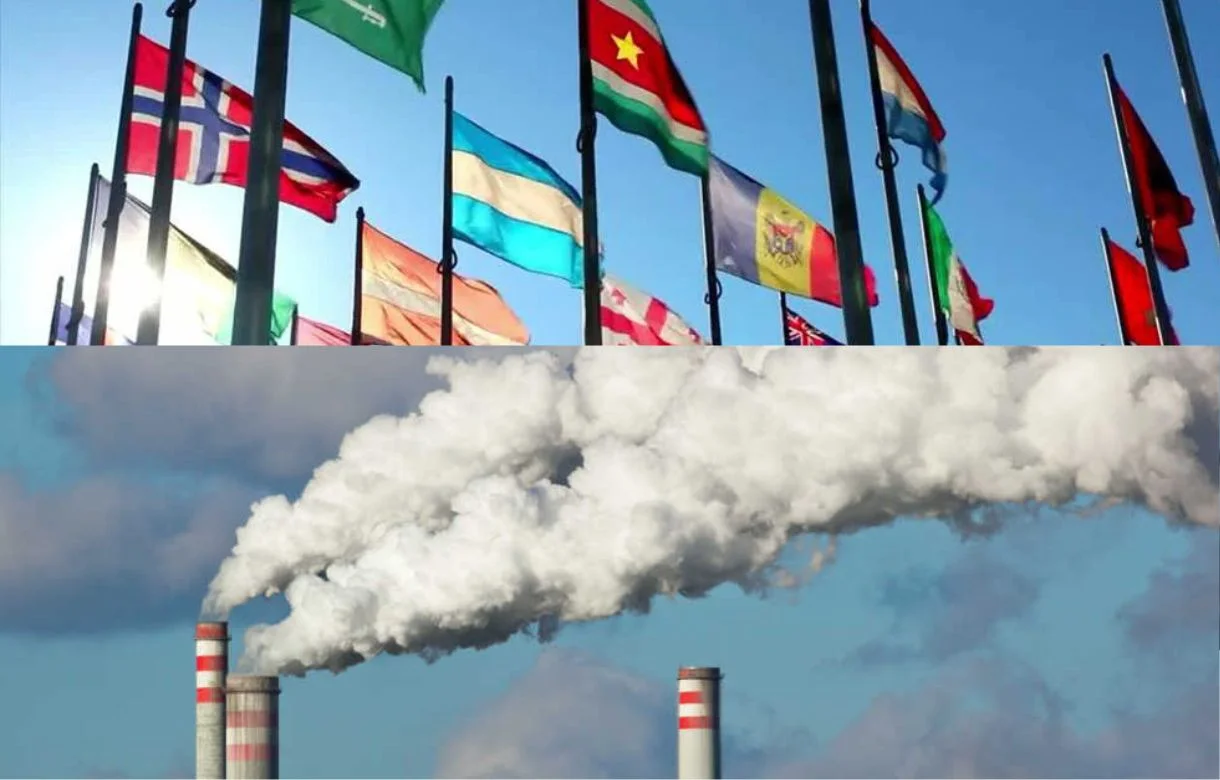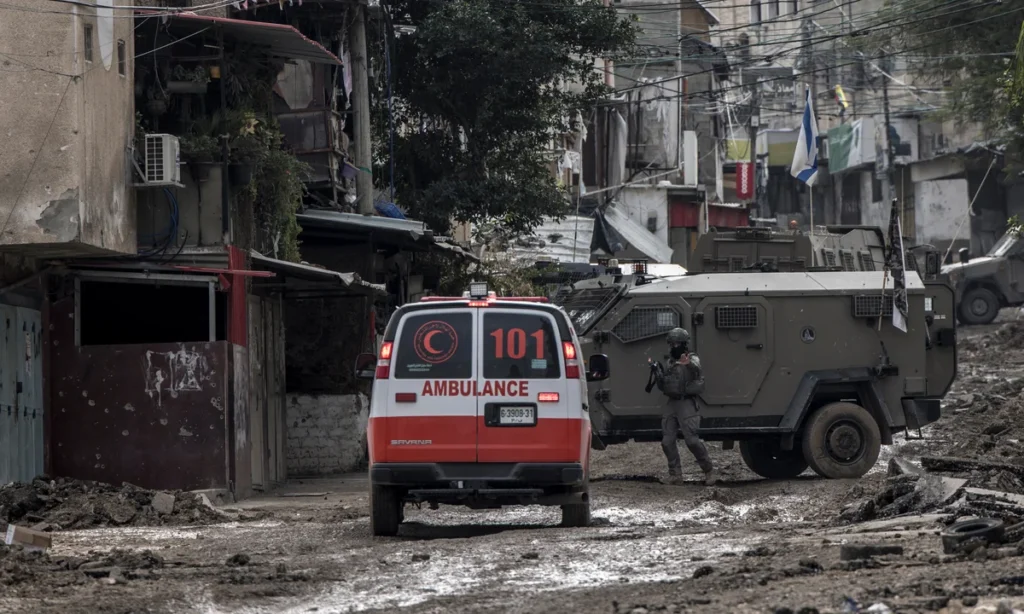Ireland improves ranking on global emission scale with record progress

Introduction
Ireland stands at 29th on Global Emission Scale !! !
According to the Climate Change Performance Index, Ireland climbed 14 places to come 29th out of 63 countries in the global emissions ranking, which is the country’s best historical position. This remarkable boost was given at the COP29 climate conference in Baku, Azerbaijan, where the audience commended Ireland in the development of renewable energy and climate change policies. The laggard Republic has also stepped up first from the bottom and reached the medium position in the global climate action.
| Year | Rank | Improvement Over Previous Year |
|---|---|---|
| 2019 | 43rd | – |
| 2020 | 41st | +2 |
| 2021 | 40th | +1 |
| 2022 | 43rd | -3 |
| 2023 | 29th | +14 |
Ireland’s Journey in Climate Action
Background and Initial Struggles
It can be said that Ireland’s trajectory on the global emission scale has not been without its fair share of ups and downs. The country was regarded as a climate laggard for many years due to the high amounts of greenhouse gas emissions it produced. The internal rifts of the political alliances and the delay in the processes of policy action were also additional challenges. Ireland has signed the Paris Climate Agreement in 2015 however till today, there has been a delay in making up the national targets to take into account climate change mitigation.
Significant Progress Made
Over the last year at most, Ireland has been able to record very impressive strides with a particular focus on the advancement of its renewable energy capacity. The past year has seen a resurgence in the number of solar power installations and the development of offshore wind energy projects. The imposition of legally enforceable carbon budgets and ceilings on sectoral emissions is also indicative of the country’s commitment to climate action.
Global and Local Perspectives
Ireland in the Global Context
On global emission scale, Ireland’s 29th position is slightly better than that of several large countries, but still not on par with the most effective countries such as Denmark, The Netherlands and the UK. Denmark has remained number one since it has undergone a successful transformation into a country powered by renewable energy. On the other hand, heavy-demanding energy fossil fuel economies of countries like the UAE and Saudi Arabia still hold them in the last ranks.
The fact that Ireland progressed is encouraging showing that small countries can also achieve a lot when it comes to fighting climate change.
Domestic Challenges and Achievements
A number of these difficulties remain present in Ireland. Delays in implementing relevant policies have stemmed from political strife in the coalition government, with some members opposed to policies that limit transport emissions.
Nonetheless, successes such as the solar energy “rooftop revolution” as well as improved contributions for climate financing show the ambition of the nation. Minister Eamon Ryan noted that these activities are advancing steadily, leaving behind the remnants of Ireland’s former reputation as a climate laggard.
Key Remarks from COP29 and Eamon Ryan
Addressing participants at the 29th Conference of the Parties in Madrid, the Minister for Environment, Climate and Communications, Eamon Ryan, commended Ireland’s progress but also pointed out that more needs to be done.
He noted that solar power and offshore wind energy were far reaching measures of Ireland’s dedication to eliminating its fossil fuel reliance. Nevertheless, he scolded the Fellow members of the coalition of their careless disregard in executing timely measures on the climate crisis.
Ryan noted that climate change cannot be ignored and must be tackled by all political leaders together with effective laws.
“When the going gets tough, the so-called tough, ceases to exist.” This made it clear how politics distorts science on climate change.
| Topic | Details |
|---|---|
| Ranking Improvement | Climbed 14 places to 29th |
| Minister Ryan’s Remarks | Progress lauded, need for unity stressed |
| Germanwatch Recommendations | Offshore wind, transport electrification |
Opportunities and Concerns
To some extent pleasing is the upward trend of Ireland in the global emission scale but there are still steps to undertake which are substantial. It is also stated in Germanwatch’s report that more concrete measures such as upgrade of the ports for offshore wind farms activities and mass scale transport electrification shall be undertaken. Oil and gas dependency and the growing number of data centres are issues of concern that need to be addressed.
There are also some favourable elements in seeking to increase that particularly offshore wind and solar energy projects. There is a hypothesis that regarding climate finance even now at this incipient stage when it is still low in terms of quantities but high in terms of effective quality, Ireland could preempt climate impact funding.
Conclusion
The rapid leap of Ireland on global emission scale is a clear landmark in the climate timeline of the country. The country is affirming that it is possible to advance with the acceptance of clean energy, aggressive climate policies, and resolving issues within the country.
However, to cement the country’s position as a leader in the fight against climate change, Ireland has to maintain the momentum and the political goodwill. Hope is not absent while the overall outlook for the future is not bright. Ireland’s recent achievements are a cause for optimism.
As Minister Ryan put it, “We are leaving our climate laggard tag behind.” We need to focus on how to go beyond this and explore strategies for achieving quicker transition towards a sustainable, low emission economy.
FAQs
1. What is Ireland’s current rank on the global emission scale?
Ireland is ranked 29th out of 63 countries, marking its best performance on the global emission scale.
2. What factors contributed to Ireland’s improved ranking on the emission scale?
Ireland’s progress is attributed to advancements in renewable energy, including solar and offshore wind, and the introduction of carbon budgets.
3. Which challenges does Ireland still face in climate action?
Delays in policy implementation, political disagreements, and reliance on fossil fuels are among the key challenges.
4. How does Ireland compare to other countries on the global emission scale?
While Ireland ranks higher than many countries, it still trails leaders like Denmark, which tops the scale due to its renewable energy initiatives.
5. What are Ireland’s future goals for climate change mitigation?
Ireland aims to upgrade port infrastructure, expand renewable energy projects, and electrify transport to further reduce emissions.
LATEST NEWS
DISCOVER MORE






